At risk of putting myself in the direct firing line – I am going to ask a question…. Has feminism in Western society become obsolete? I ask this purely as a lay person – I am certainly no expert on the subject – but it is something that has had me pondering recently….
Before even beginning to try to make sense of what is going on in the Western world of feminism at this present time….it would perhaps be useful to remind ourselves why the feminist movement was even necessary in the first place…. Would the Suffragettes and Suffragists – those brave women of the late 1800s and early 1900s – be raising an eyebrow at what feminism has become? Would they be horrified that women are still struggling to achieve equality in so many areas of life – or would they shake their heads in disbelief that we appear never to be satisfied…?

Perhaps the earliest feminist in Britain was the woman now referred to as ‘the grandmother of feminism’, Mary Wollstonecraft – with her book The vindication of the Rights of Woman in 1792…. A publication that was actually very well received in its time – but it was another century before women really began to fight for the Cause. After centuries of oppression and the ownership of women….it was the dawning of a new era….
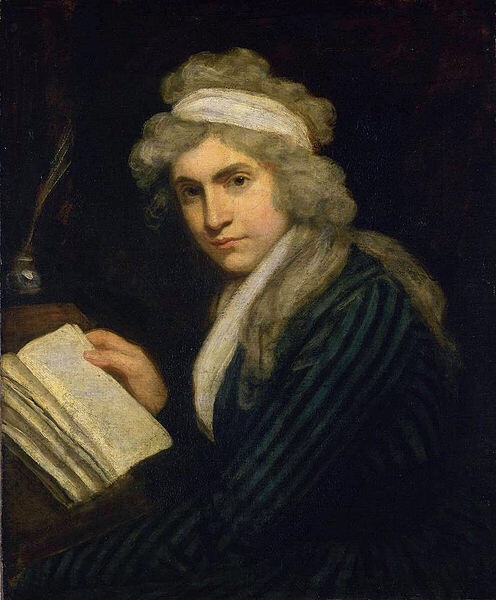
Right up to the 20th Century there were three little words that sealed a woman’s fate – (or at least if she was married in the Church of England) – the moment she uttered ‘love, honour, obey’…. It is interesting to note the Catholic Church has never had ‘obey’ in its marriage service….
To ‘obey’ probably originated in Roman times, when daughters were the property of their fathers and then later the ownership passing to her husband – a practice to remain right up to the time of Women’s Suffrage…. For the lower Roman classes is was a case of ‘free marriages’ – the father giving his daughter to the groom…. Whereas, wealthy Romans would have had a contract, outlining property etc to be part of the dowry; this was the beginnings of legalised marriage….
The word ‘obey’ was introduced to the Church of England wedding service in 1549, when the first Book of Common Prayer was authorised by King Henry VIII. In biblical origins the wife should submit to the husband – just as the Church should submit to Christ…. Obey was taken literally within marriage – the wife and any children being the property of the man – his word was law…. Everything she owned belonged to her husband, everything she earned if she was working and any inheritance she was due….

If she were to disobey she could expect to be punished – a good beating was often meted out….and was perfectly legal and accepted within a marriage…. Only when a woman’s life was endangered could a case be brought before the Courts – even then the sentences were often lenient. As only the most brutal cases made it as far as Court, so recorded trials of the time were just the very tip of the iceberg….
Edward Doyle murdered his wife…. He broke her ribs, beat her, scolded her with boiling water, thrust a red-hot poker into her abdomen – and then left her to die for two days; he got 15 years for man slaughter. Bearing in mind this was at a time when the sentence for stealing a sheep was 10 years transportation….and if he had killed a man he would have gone to the gallows….
Much domestic violence was fuelled by alcohol; lower classes tended to be more openly violent towards each other. Neighbours would seldom intervene, as it was seen as an everyday part of marriage. The middle classes had their share too, although in the face of respectability it more often happened behind closed doors. If a man was violent towards his wife, he was likely to be towards his children too….
A judge in the 19th Century actually deemed it was perfectly permissible for a man to beat his wife providing the stick he used was no thicker than his thumb…. Hence the saying ‘rule of thumb’….
So, a man could beat his wife senseless on a regular basis – but she was not at liberty to divorce him…. Marriage, being the ‘glue of society’ was to be preserved at all costs…. A wealthy woman, who could prove her spouse’s abuse or infidelity may have been able to obtain a legal separation (at a hefty cost, approx £1,500 – equate that to modern-day terms)….but neither would have been permitted to remarry. However, one little dalliance on her part and her husband could divorce her immediately – keeping any money, property or possessions she brought with her to the marriage – and stopping her from ever seeing her children again…. In any divorce case the children automatically stayed with the father….
In 1853 the Aggravated Assaults Act was passed in Parliament – after Mr Fitzroy, the MP for Lewes, pushed against inadequate penalties handed out to perpetrators…. Sentences and fines were increased but still after 1853 newspapers were full of reports of wife-beating….
In 1857 the Divorce and Matrimonial Clauses Act was passed – giving women the option of divorce on the grounds of cruelty…. In 1870 the Married Women’s Property Act gave women the right to the possession of their own earnings…. In 1882 married women were given the same rights as unmarried women with regards to property – meaning any possessions, money, land or property she owned before marriage did not automatically pass to her husband…. A further Act in 1893 gave married women control over any property acquired during the marriage; for example, an inheritance….
It was a start but there was still a long way to go…. It was no wonder women often regarded marriage as slavery…. By the late 1800s the situation was becoming a lot less tolerated and at the tail end of the Victorian era the Women’s Suffrage Movement began….
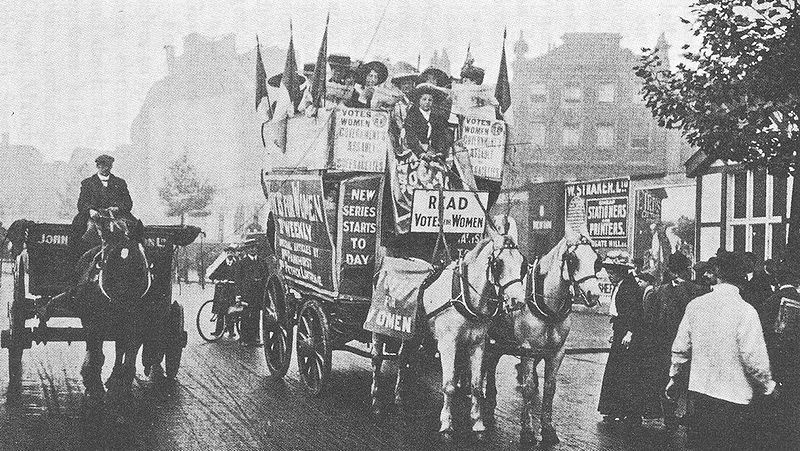
Feminism is often divided into three ‘waves’…. The definition of feminism – ‘the advocacy of women’s rights on the grounds of the equality of the sexes’ – is exactly what the Women’s Suffrage Movement was all about….equality. The Victorian idea of women, in the home bringing up the children – whilst the men got on with earning the money and running the Country….did not sit well with all…. Women were no longer content to remain silent and let the menfolk decide what was right for them, their lives and the rules and regulations they had to live by….they wanted their say….they wanted a part in the decision making….they wanted the Vote….

Finally, in 1918 women over the age of 30 and who were property owners were granted the Vote…. In 1928 women got the Vote at the age of 21 – the same age as men…. Equality, at least on this score, had been won…. Incidentally, it was also in 1928 that, prompted by the Suffrage Movement, the Church of England began to offer an alternative option in the marriage ceremony…. No longer was the bride required to promise to obey – both she and the groom could vow to love and cherish one another….
The 1930s was an era of progression for women – but it was the arrival of World War 2 that brought real employment opportunities for women….with so many men away fighting, jobs had to be filled.
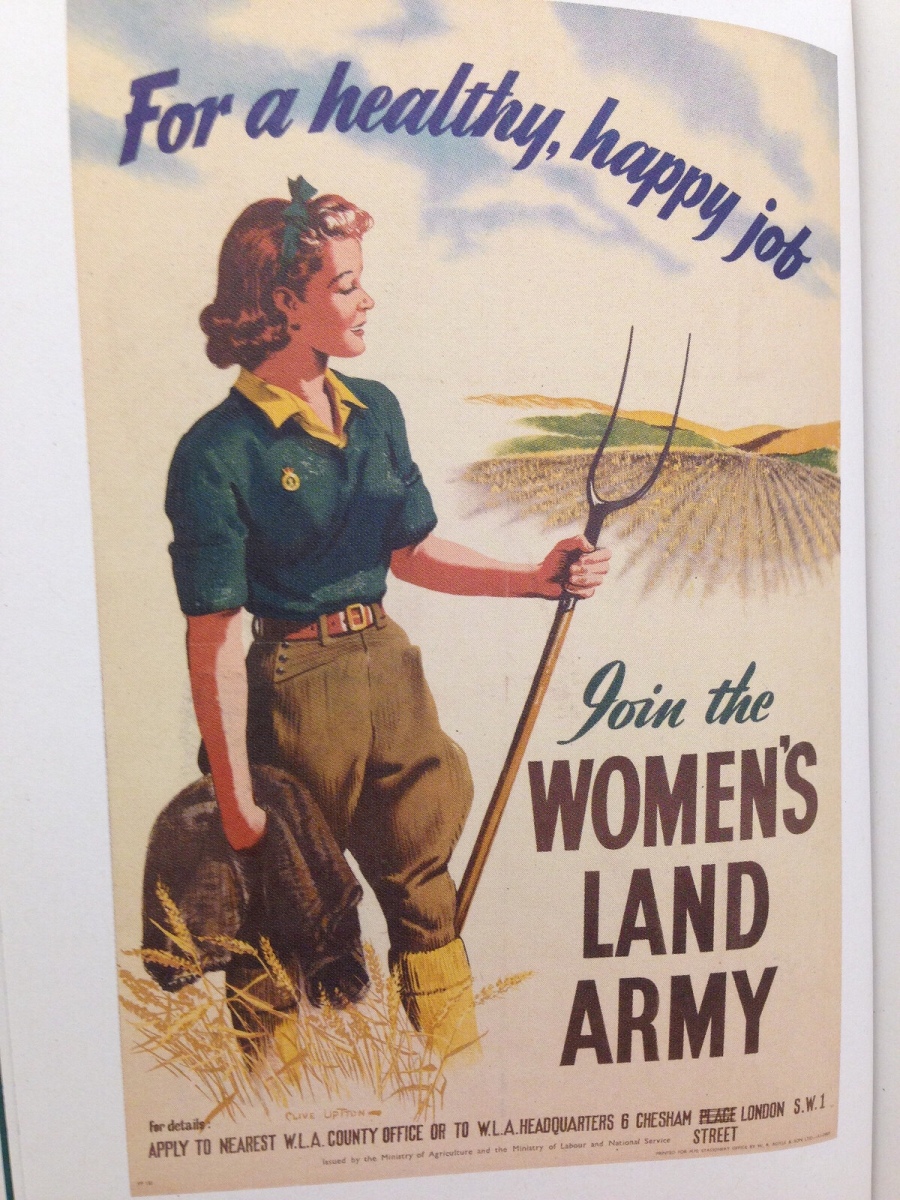
However, once the war years were over women were expected to beat a hasty retreat back to the kitchen to make way for their returning menfolk. Having had a taste of freedom and independence, understandably many were not willing to become submissive and reliant once again….

So, in the 1950s a second wave of feminism ensued – the battle for equal rights in the form of the Women’s Liberation Movement (Women’s Lib for short). This wave lasted through to the 1980s; its focus being on equality in marriage, sex and sexuality and the workplace…. Equal pay and control over their own bodies….


It was during the 1960s and 70s that the Movement splintered into two groups; the equal rights feminism wanting equality with men on a political/social front and then the radical feminist – who wanted even bigger changes. Radical feminism tended to be advocated by younger women who wanted change to attitudes surrounding gender, race, sexuality and class…. The 1960s saw the sexual revolution – starting with the arrival of the contraceptive pill in 1961 – (in the beginning only available to married women)….
1964 saw a revision to the Married Women’s Property Act; allowing women to keep half of any savings made as a couple should the marriage break up….

In 1967 the Abortion Act legalised abortion for a pregnancy of up to 24 weeks. Available only to married women, two doctors had to consent that the pregnancy would be harmful to the mother’s physical or mental health – or that of her unborn child’s….
Women continued to make progress in politics; Barbara Castle became the first female Secretary of State in 1968 – meanwhile women were striking for equal pay…. 850 women machinists working for Ford in Dagenham walked out – disputing that their work was defined as ‘unskilled’ – they demanded the same pay as their ‘skilled’ male colleagues…. (Bearing in mind it was still perfectly legal when advertising a job to state whether the position was open to specifically male or female – women were often required to do ‘unskilled’ work)….
More radical feminists were turning their attention to events objectifying women – such as the Miss World Beauty Contest, which was first held in 1951. Stating that they found it ‘insulting and undermining that women were judged solely on looks’ – activists threw flour bombs at the 1970 contest being held at the Royal Albert Hall, London….
1975 was the United Nations International Year of Women – to raise global awareness of Women’s Rights. Since that year International Women’s Day has been celebrated every year on March the 8th by countries all around the World….

1975 also saw the formation of the National Abortion Campaign – defending women’s rights to make decisions about their own bodies….and the Sex Discrimination Act was passed in Parliament – protecting women (and men) from discrimination on the grounds of their sex and marital status in areas such as education, training and employment….
Margaret Thatcher became Britain’s first female Prime Minister in 1979 – to become known as the ‘Iron Lady’…. Eight years later Diane Abbott became the first black woman to be elected to the House of Commons….

Although the Women’s Rights Cause was heading in the right direction alarmingly one very sensitive and emotive area was slow to change – the matter of domestic violence, particularly the definition of rape within marriage….
“But the husband cannot be guilty of Rape committed by himself upon his lawful wife, for by their mutual matrimonial consent and contract the wife hath given herself up in this kind unto her husband which she cannot retract” – A principle which was established in 1736 by Chief Justice Hale….
No challenge to this was made in Court until 1949…. A woman had obtained a Separation Order from the Magistrates – after which she was assaulted by her husband – it was decided he could be charged with rape as she had in fact revoked her consent…. However, in 1954 another woman had petitioned for divorce but shortly afterwards was attacked and raped by her estranged husband, causing her actual bodily harm…. The Court refused to charge her husband – saying that by petitioning for divorce she had not revoked her consent…. It took until 1991 for rape within marriage to become a crime….
The first women’s refuge opened in Chiswick, West London in 1971 – providing a safe place for women and children who had been abused by husbands….
In 1981 Princess Diana married Prince Charles, bucking the trend and breaking the Royal precedent by not agreeing to obey in their wedding vows; instead she promised to ‘love, comfort, honour and keep’….

In 2006 a Church of England report said traditional vows with obey were being used by some men to justify domestic violence…. The report urged Church ministers to emphasise to couples about to marry that men and women were equal in the eyes of God…. Part of the worry being that victims of domestic violence could blame themselves, thinking they were deserving of the abuse….
It could be said the 1980s were the turning point with regards to the attitude surrounding sexism in the workplace. No longer were women willing to tolerate being held back from advancing in their careers, any more than they were going to continue putting up with the stereotypical office ‘perv’, with his lecherous remarks and bottom pinching…. It was the dawning of political correctness as we know it now; women were becoming empowered in the workplace, more and more senior positions were being filled by females…. By venturing deeper into what had predominantly been a male World, women started to ‘play’ harder too…. The ‘ladette’ culture started to emerge – rowdy hen parties to rival the most raucous stag-dos…. Ladies Nights – screaming, laughing and heckling at the evening’s entertainment – often comprising of groups of oiled, well-toned young men, such as the Chippendales…. The role being reversed – women objectifying men…. After thousands of years of male dominance – the girls were letting their hair down and having fun….

Still the fight for women’s equality went on…. Challenging gender roles, highlighting freedom of choice over reproductive rights; birth control, abortion, and to choose when or even if to have a family…. Raising awareness of rape and violence towards women; seeking a way to stop oppression….stopping the sexual objectification of women….
When we look at our lives as we lead them today and compare them to those lives of women only 100 years ago – we realise what a long way we have come…. Of course, there are those who would argue it has taken too long and we still have a long way to go…. We are now in a third wave of feminism; one that is more radical….

It seems every time the radio or TV is turned on, a newspaper opened or the internet logged on to, there is at least one story hitting the headlines…. Sexual harassment and bullying in Westminster – Harvey Weinstein – Oxfam…. Women groped at a men-only charity event at the Dorchester by senior figures from politics and business…. Formula 1 to drop grid girls as from this coming season, as the image no longer fits in with modern-day society….

A previous example of this: The Sun had topless Page 3 girls in its newspaper for 44 years – this stopped in 2015…. No more pictures of bare boobs at the breakfast table (yet women shunned for breast-feeding in public)….this must have been viewed as a victory by radical feminists…. On the other hand though – could it be said this was actually removing choice for women? What about those who choose to make a career from glamour modelling or other related work….is it the aim that this option be denied to them….?
Then there is the issue of the gender pay gap…. For nearly 50 years it has been law that men and women doing the same job should be paid the same…. The gender pay gap and equal pay are not the same thing…. The gender gap looks at the average hourly earnings between men and women. Figures released in April 2017 by the Office of National Statistics revealed across the UK men earned 18.4% more than women (this is down from 27.5% in 1997). Of those earning less than the living wage, 62% are women…. UK companies with 250 or more employees have to publish their gender pay gap by April 2018…this will effect about 9,000 companies, who will have to publish this information on a government website….
Of course, two people doing the same job, regardless of gender, should be paid the same hourly rate – there is no question about that….but there are other factors that should be taken into consideration…. There are fewer women in senior roles, most top jobs are still taken by men. Taking time out to have children often means women are slower to advance in their careers. Women are more likely to do part-time jobs, which are often lower paid…. These facts are going to have an impact on the average figures….
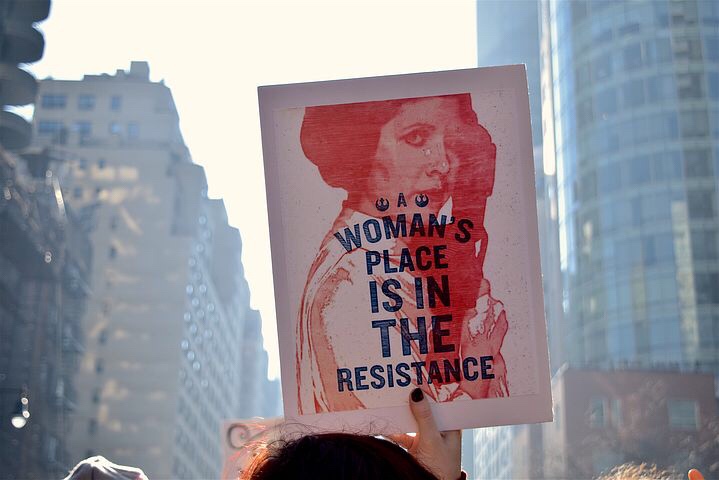
Tesco is at the moment facing a £4bn equal pay claim; a legal challenge by women working in Tesco stores, earning less than their male colleagues working in the warehouses. Their argument being the value of their work is comparable…. Also currently under the spotlight on equal pay is the BBC. A news correspondent having a salary some £10,000pa below that of her male colleagues doing the same job…. A National radio presenter paid one-third that of her male co-host…. Another BBC local radio station co-host breakfast presenter, paid half the salary her male counterpart receives….and the award-winning National radio presenter being told ‘the BBC doesn’t do equal pay’….
There is no denying that there are still many examples of women being discriminated against….and it’s only right each case is individually addressed. There is also no doubt feminism is doing a great job in raising awareness of rape, domestic violence and sexual harassment…. However, is there a danger of modern feminism becoming negative? Could it not be said we already have equality? What exactly is it we want….complete role reversal….supremacy in a unisex World? Are we becoming the gender of ball-breakers…? That’s a lot of questions, I know – but ones that will hopefully make us consider if what we are actually fighting for is actually now an outdated cause….
It would be a very under-educated view that feminists hate men; a real feminist cares just as much about men’s rights. Equality should be for all, regardless of gender, sexual preference or race…. What we should be focusing on is not just women’s rights – but human rights….
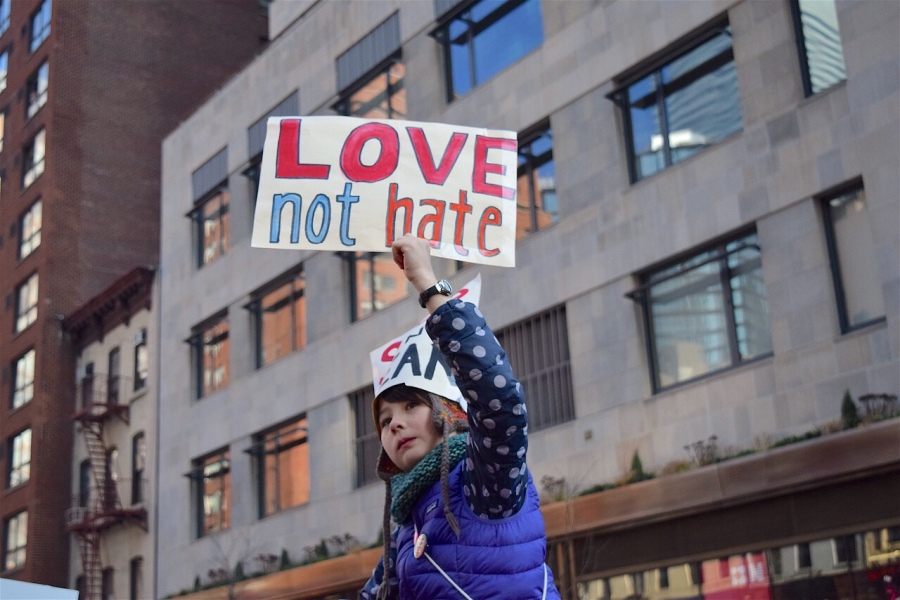
We owe so much to the Suffragettes and Suffragists – but their work is now done. Of course there are still sexist men out there – (sexist women too) – but they are a minority….most men abhor sexism and thoroughly support equality – they have proved that time and time again. It’s now time to move on; there is no getting away from the fact men and women are not the same….women bear the responsibility of childbirth – nothing is going to change that – it is what Nature intended…. For nearly every woman who decides to have a family this is going to have an impact on her career – what is important though, is this is not set in stone – at least in this day and age we have choices….

There is no doubt that men are, on the whole, physically stronger; there will always be jobs that are more suited to them….women just need to accept that – if she can demonstrate an ability to do the job just as well, then there is nothing stopping her…. The same goes for men choosing to do what in the past would have been viewed as a more feminine profession….there are fewer and fewer boundaries….. It’s about equality and getting on with doing what each and every one of us are individually best at….and as a united front….

Women are generally now no more oppressed than anybody else in Western every day modern society; opportunities are open to all…. One issue that does still keep rearing its ugly head is the sexual exploitation we are hearing so much about currently….it is dominating our news headlines…. Whilst it would be insensitive to generalise, as this is such a serious matter, it does have to be filtered…. Many historic accusations have been made – some appear to be quite insignificant and almost petty….the workplace 30 years ago was a very different place to now; a sleazy remark, a pat on the knee was quite normal behaviour back then….not right by today’s standards – but that’s how it was…. Of course more serious incidents did happen and those need to be dealt with – that said though, we have to let go of the past and move forward, looking after each other and fighting for equal rights for everyone…. We need to look to the future…. I personally am heartened, as I think this really is beginning to happen….
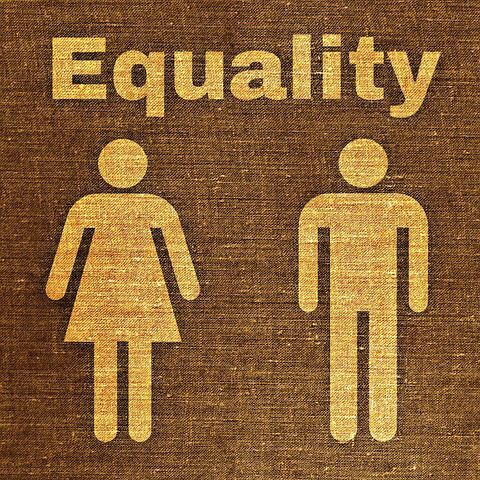


Hi Hazel, I enjoyed reading that. Something that has touched most of us in one form or another. Several in my case! X
LikeLiked by 1 person
We still have some way to go, don’t we? Mind you, as far as the BBC is concerned, I don’t understand why they are paying any of their presenters up to £750,000 a year!
Interestingly in the Ancient Laws of Wales, codified by Hywel Dda (Hywel the Good) in the 10th century, women’s rights were respected. A woman could divorce a man for adultery or for violence against her, and retain her share of property. Rape was recognised as a crime (which it wasn’t elsewhere in Britain). This all changed with the coming of the Normans, of course…
LikeLiked by 1 person
As you know I’m fascinated by customs & traditions… I’m aware that anyone reading my blog posts may think I’m religious as I talk about the Church a lot (I’m not – I don’t particularly believe)… but time & time again…everything seems to come back to religion…all our ways seem to have been influenced by it – what ever faith you have been brought up by… That interests me as not only does it set standards to live by but it seems to have been used as a way of answering questions beyond our understanding… I wonder if time had begun now…with our scientific knowledge – if religion would exist… (That’s a bit profound – I feel a blog coming on)… X
LikeLike
From an equal opportunities point of view, at least in medicine, women have reached parity with men. One knows this is true when one requires treatment from doctors in the formally male dominated field of urology and, in my case, the only available surgeon to perform an unfortunately required bilateral orchiectomy was a woman. Something that took a bit of doing to wrap my head around.
LikeLike
I understand what you are saying…. Any medical procedure that any of us has to undergo is a very personal thing and can be daunting ~ when it is of a more intimate nature, this just adds to the worry…. I suppose we have to condition ourselves to accept we are in the hands of professionals and the gender of our health care specialist should be irrelevant ~ but it’s not that easy is it? Sending you good thoughts and wishes….
LikeLike